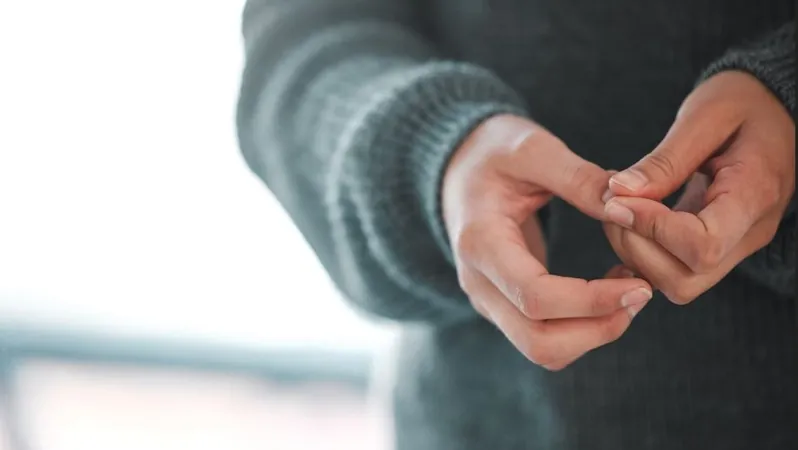
Is Your Irritation with Fidgeting a Sign of Misokinesia? Discover This Rare Condition!
2024-12-11
Author: Michael
Understanding Misokinesia
If the mere sight of someone shaking their leg, twirling their hair, or biting their nails fills you with a deep sense of agitation, you might be experiencing a little-known psychological condition known as misokinesia. Recent research from the University of British Columbia exposes the effects of this fascinating condition, which afflicts an estimated one in three individuals to varying degrees.
The Emotional Toll
Misokinesia, often referred to as “hatred of movements,” leads to intense discomfort when witnessing fidgeting behaviors. During the study, lead researcher Sumeet Jaswal shed light on the profound impact it can have on some individuals. “For some, the emotional response is so severe that it can lead to significant distress in their daily life,” Jaswal notes.
Participants’ Reactions
Participants in the study reported a range of intense emotions when confronted with fidgeting. Some expressed feelings of anxiety and disgust, while others described experiences akin to torture. For instance, one individual relayed chilling fantasies about violently incapacitating those who fidgeted around them. These visceral reactions included physical symptoms such as increased heart rate and difficulty breathing, showcasing the depth of distress associated with this condition.
Impact on Relationships
The research, published in the journal PLOS One, involved interviews with 21 participants from a Facebook support group, highlighting how such behaviors can damage personal relationships. The impact of misokinesia extends beyond individual discomfort; it can complicate ties with family members and friends, making daily interactions strained and challenging.
Misokinesia vs. Misophonia
Jaswal emphasizes that misokinesia may share similarities with misophonia—a condition characterized by extreme annoyance at certain sounds like chewing or tapping—yet they are distinct phenomena. "While some individuals might experience both, it’s crucial to recognize that each condition exists independently and can occur without the other," she explains.
Raising Awareness
This study aims to elevate awareness about misokinesia, lending a voice to those who suffer quietly in social settings. It’s essential for both sufferers and their loved ones to understand that this is a legitimate condition that can be distressing and isolating. As we learn more about the psychological impacts of seemingly trivial human behaviors, perhaps we can foster empathy and support rather than irritation.
Conclusion
So the next time you feel that familiar urge to cringe at someone’s fidgeting, take a moment to consider: Is it just a quirk, or could it be revealing a deeper psychological struggle? Advocating for awareness and understanding might be key to transforming our interactions and compassionately addressing this hidden phenomenon.









 Brasil (PT)
Brasil (PT)
 Canada (EN)
Canada (EN)
 Chile (ES)
Chile (ES)
 España (ES)
España (ES)
 France (FR)
France (FR)
 Hong Kong (EN)
Hong Kong (EN)
 Italia (IT)
Italia (IT)
 日本 (JA)
日本 (JA)
 Magyarország (HU)
Magyarország (HU)
 Norge (NO)
Norge (NO)
 Polska (PL)
Polska (PL)
 Schweiz (DE)
Schweiz (DE)
 Singapore (EN)
Singapore (EN)
 Sverige (SV)
Sverige (SV)
 Suomi (FI)
Suomi (FI)
 Türkiye (TR)
Türkiye (TR)